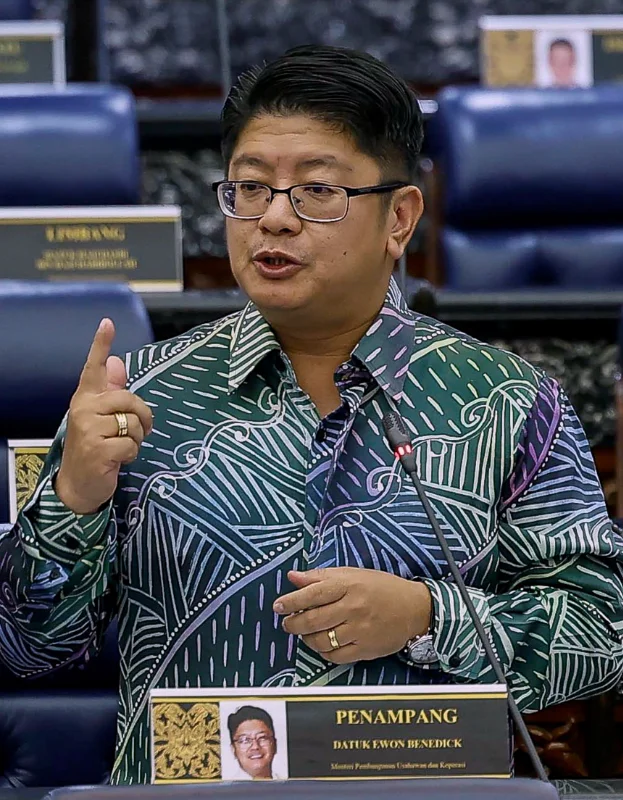‘Losing minister from Sabah disrupts balance of East Malaysian representation in Cabinet’
PETALING JAYA: Sabah’s political landscape has been thrown into uncertainty and the Unity government faces fresh pressure over MA63 rights and East Malaysian representation after Datuk Ewon Benedick resigned as Entrepreneur and Cooperatives Development minister on Saturday.
Universiti Malaya socio-political analyst Datuk Prof Dr Awang Azman Awang Pawi described the move as a “principled” political statement but added that the timing is “deeply problematic”.
“His action has been described as ‘principled’ in defending Sabah’s rights, but coming just before the Sabah state election, it clearly adds an element of political drama to an issue that should ideally be resolved through constitutional and administrative processes.”
The analyst pointed to a familiar pattern in local politics – the leveraging of state-based sentiment for electoral gain.
“His stance can be seen as an attempt to exploit the MA63 agreement and ‘state nationalism’ sentiment in Sabah for political advantage.
“Meanwhile, ordinary Sabahans are more concerned with stability, job opportunities, cost of living as well as water and electricity issues, not political rhetoric alone.”
Ewon’s departure also dents the government’s image of inclusivity.
Awang Azman said losing a minister from Sabah disrupts the balance of East Malaysian representation in the Cabinet.
“To maintain an inclusive image, the prime minister should ensure that the replacement is also from Sabah, ideally from the Pakatan Harapan and United Progressive Kinabalu Organisation (Ewon’s party) bloc itself.”
Despite the political shockwaves, Awang Azman believes the resignation is unlikely to trigger a cascade of exits among Sabah and Sarawak leaders.
“Ewon’s move may give some leaders moral encouragement to speak more boldly about state rights. But most are expected to remain in government as they are more effective pursuing MA63 matters through internal diplomacy rather than external pressure.”
He urged Prime Minister Datuk Seri Anwar Ibrahim to act swiftly to manage public perception and maintain stability.
“The prime minister should clarify MA63 implementation timelines, reaffirm respect for national institutions and introduce tangible interventions for Sabah, particularly regarding cost of living, water, and electricity.”
On Sabah’s long-standing 40% revenue claim, Awang Azman warned that while political pressure may intensify, legal procedures remain paramount.
Looking ahead to the state election, Awang Azman stressed that voters are focused on results, not rhetoric.
“Sabahans want solutions to water and electricity issues, job opportunities, clean governance, better wages and political stability.
“Any party that can link MA63 to tangible, immediate results will dominate political sentiment in Sabah.”
The Sabah state election, set for Nov 29, will see over 1.7 million voters head to the polls.
Analysts expect national and state issues, from MA63 rights and revenue claims to basic services and livelihoods, to dominate the campaign narrative. As the Unity government navigates this latest challenge, the key tests will be maintaining Sabah representation, safeguarding institutional integrity and turning political promises into meaningful outcomes for the people.








